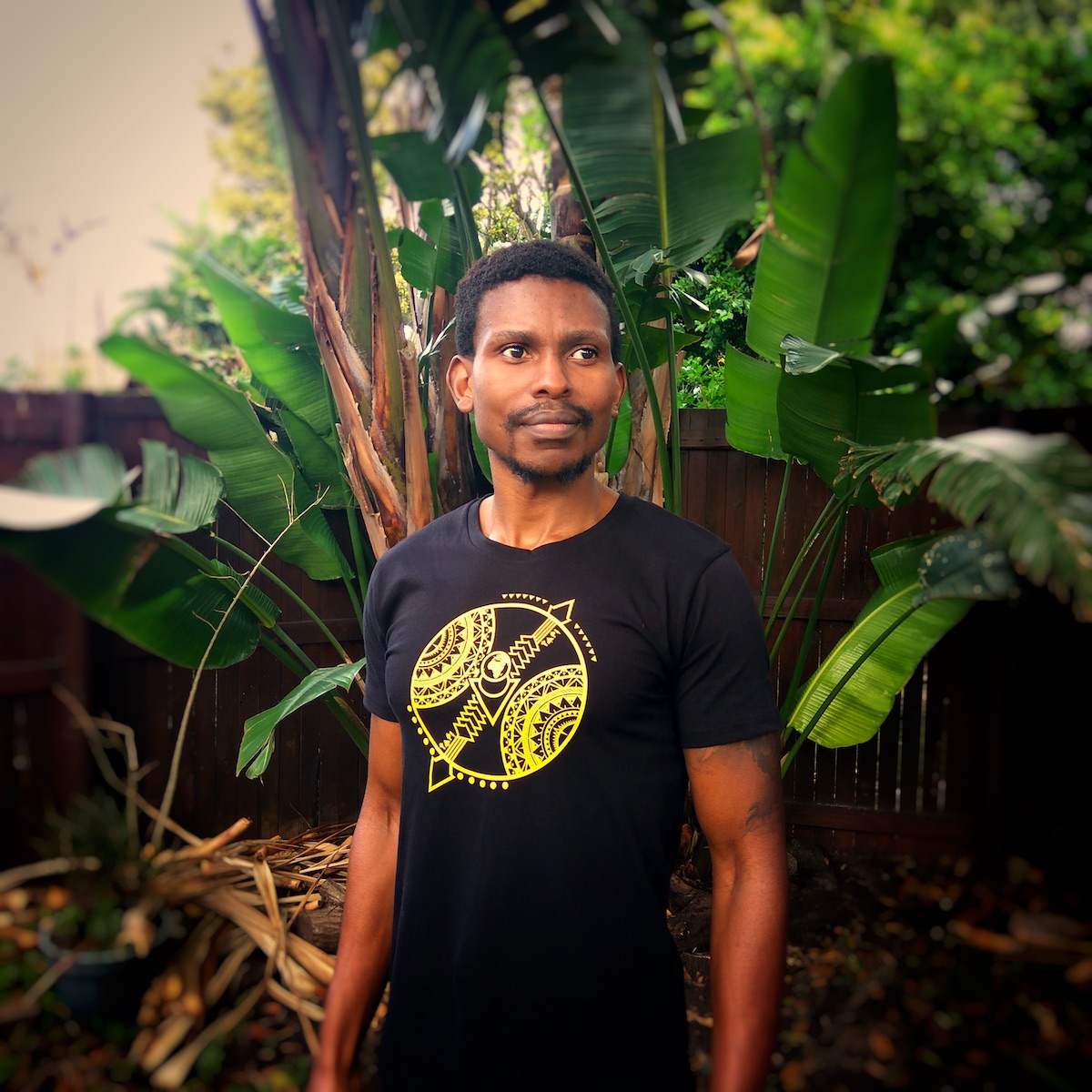Meet the man using ice cream as a platform for humanitarian work
You might recognise Tapiwa Guzha, a.k.a. Tapi Tapi, by his ice cream, but that’s not all he does. Using ice cream as a platform to have a broader discussion about matters such as identity and culture, Tapi has become an inspiring force in the local food industry and beyond. He chats to us about what’s been keeping him busy and what he’s planning next.
Formally a scientist with a PhD in molecular biology, Tapi has an altogether different approach to ice cream. He finds inspiration for his flavours all over – from weekly forages, African culture and tradition all act as a base for ideas. Flourishing ice cream business aside, Tapi works hard to empower the community around him, through a feeding scheme he set up that serves wholesome, real food.

1. Having made it through lockdown, how are you feeling about life and your business at the moment?
Unlike others, I didn't actually hustle during lockdown, I knew I'd be starting a new initiative this year and had saved up to sustain myself as a fledgling entity. Once restrictions were lifted, I continued as usual and my feelings about life and the initiative haven't shifted. I'm not in the ice-cream business, I never have been, so my success and happiness isn't linked to ice cream sales. I'm far more focused on the humanitarian impact of the work and how empowering it's been for myself and other folks who look like me. Life is great, I feel happy, report to nobody. I am free.
2. I’d like to talk about your podcast a little. Can you start by telling us what sparked the idea and need for it?
I make choices based on how they will affect my happiness. Starting the podcast was a nice way to get some thoughts and ideas out and to share some of my journey and experience. I knew it would be cathartic and benefit others, so I did it because it would make me happy. I host it on my website only and release it whenever I feel like it because it's not an obligation and something done out of choice every single time. Again, maintaining happiness is important.
View this post on Instagram
3. You tackle some very heavy, interesting topics such as identity, authenticity and gentrification. Why is it important to you to delve into these kinds of subjects? What have been some highlights of having these discussions?
I wouldn't define them as heavy, they're just reality and I believe we should be able to transition in and out of any subject with relative ease. We have to engage with the entirety of our lives, from silliness to the heavy and everything else. The beautiful thing about sharing more about ourselves is realising that we are all having very similar experiences and instead of benefiting from that shared experience, we think we are going through a unique struggle alone.
4. Can you talk a little about the food distribution programme you set up? When did you establish it and how can people get involved?
The food distribution programme is something that I started about four years ago. The food industry likes to sell the idea that great food is expensive and we have convinced ourselves that a slice of white bread and jam is decent, nourishing food. I disagree with both and I feel if you're going to share some food with someone, share the food you eat in your own home or don't bother. I eat great, nutritious food and this programme helps me facilitate that for other folks once a week. If you'd like to participate, buy an "Iwe neni" meal via my website.
View this post on Instagram
5. Though you’ve got so much going on at the moment, I get the feeling you’ve always got something up your sleeve. Can you share what else you’ve been working on? What can we look forward to seeing you do next?
Tapi Tapi ice cream is a tool that currently serves the purpose of representing different African cuisines and flora on the violently whitewashed Cape Town and South African foodscape. Authentic, representative and responsible ice cream is one aspect of my greater purpose, which is focused on the rehabilitation of the African ego in light of centuries of colonial oppression. The reality of this work is I can't and, indeed, don't do it alone. It cannot be approached from one angle while all else is forgotten. At the moment I'm focused on co-opting other Africans into the mindset of putting all our local cultures in the forefront of all that we do. This is how Tapi Tapi expands, through everyone else carving out space for their own identities and culture in their own contexts so that we truly live African lives instead of being cultural tourists in our own stories. Be African in every moment and not only when a public holiday reminds you to do so.

To keep up with Tapi, follow him on Instagram and look out for our feature with him in our upcoming November issue.



Comments